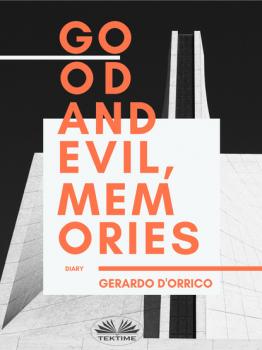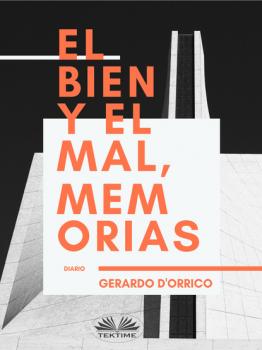Социология
Различные книги в жанре СоциологияGood And Evil, Memories
This book is the first handbook about being contemporary and personal diary written by me. The calm of well-being, of inventions. The three-dimensional aspects of concrete and human objects, for a research in individual thought. A work that frees from stylistic commitments, mistakes are everyone's, the present must be represented but, without the fear of having made a bigger mistake than the previously accepted silence. By choosing a speech, it promises a definitive daily solution to rhetorical-historical art. It describes my experiences, imaginatively the memories of a good in the land of evil. This book is the first handbook about being contemporary and personal diary written by me. The calm of well-being, of inventions. The three-dimensional aspects of concrete and human objects, for a research in individual thought. A work that frees from stylistic commitments, mistakes are everyone's, the present must be represented but, without the fear of having made a bigger mistake than the previously accepted silence. By choosing a speech, it promises a definitive daily solution to rhetorical-historical art. It describes my experiences, imaginatively the memories of a good in the land of evil. Diary written in a simple way, a textual form to fill even an absence of complete information about the right to good, which characterizes an insensitivity in public and journalistic publications. A phenotype inclusive of modern material, Christian and Arabic objectivity. It wants to represent a door to the future, a new party. The period of the eighteen letters contained reaches from August 2005 to March 2007.
El Bien Y El Mal, Memorias
Este libro es el primer manual del ser contemporáneo y diario personal escrito por mí. La calma del bienestar, de las invenciones. Los aspectos tridimensionales de los objetos humanos concretos, a forma de investigación del pensamiento individual. Una obra que libera de compromisos estilísticos, los errores son de todos, el presente debe ser representado sin embargo, sin temor a haber cometido un error mayor que el silencio previamente aceptado. Escogiendo un discurso, promete una solución diaria definitiva al arte retorico-histórico. Describe mis experiencias, fantasiosamente las memorias del bien en la tierra de los malos. Este libro es el primer manual del ser contemporáneo y diario personal escrito por mí. La calma del bienestar, de las invenciones. Los aspectos tridimensionales de los objetos humanos concretos, a forma de investigación del pensamiento individual. Una obra que libera de compromisos estilísticos, los errores son de todos, el presente debe ser representado sin embargo, sin temor a haber cometido un error mayor que el silencio previamente aceptado. Escogiendo un discurso, promete una solución diaria definitiva al arte retorico-histórico. Describe mis experiencias, fantasiosamente las memorias del bien en la tierra de los malos. Diario escrito de modo simple, una forma textual de colmar la ausencia de información sobre el derecho al bien, que caracteriza una insensibilidad en las publicaciones públicas y periodísticas. Un fenotipo que incluye material moderno, cristiano y árabe. Quiere representar una puerta al futuro, un partido nuevo. El periodo de las dieciocho cartas incluidas va desde agosto del 2005 a marzo del 2007. Buena lectura
Краткое содержание книги: Умные граждане – умное государство. Бет Новек
Этот текст – сокращенная версия книги Бет Новек «Умные граждане – умное государство». Только самые ценные мысли, идеи, кейсы, примеры. Эта книга о том, что решение государственных, общественных задач и проблем XXI века требует участия граждан. Оценивая свой опыт работы при администрации президента США Барака Обамы, Бет Новек описывает основные препятствия, которые возникают на пути внедрения гражданской экспертизы в процесс разработки государственной политики. Автор рассматривает плюсы и минусы диалога чиновников и народа и предлагает конкретные практические меры, реализация которых способна сделать государство более умным и эффективным – с помощью краудсорсинга талантов среди граждан. Зачем читать • Получить представление о мерах, предпринятых в разных странах, чтобы сделать правительства более открытыми для граждан. • Разобраться, как происходит привлечение внешних экспертов к разработке госполитики. • Выяснить, какие технологии могут быть использованы в работе госаппарата и каких улучшений можно достичь. Об авторе Бет Новек – профессор на факультете технологий, культуры и социологии Политехнического института Нью-Йоркского университета, автор нескольких книг об использовании современных технологий для улучшения работы госаппарата. Занимала пост первого заместителя главного директора по технологиям США, параллельно возглавляя вашингтонскую «Инициативу открытого правительства» – программу сбора идей широкой общественности, как сделать правительство более прозрачным, обеспечить гражданский контроль за действиями государства, а также вовлечь граждан в госуправление и обеспечить максимальное сотрудничество правительства с гражданами, общественными организациями и бизнесом.









